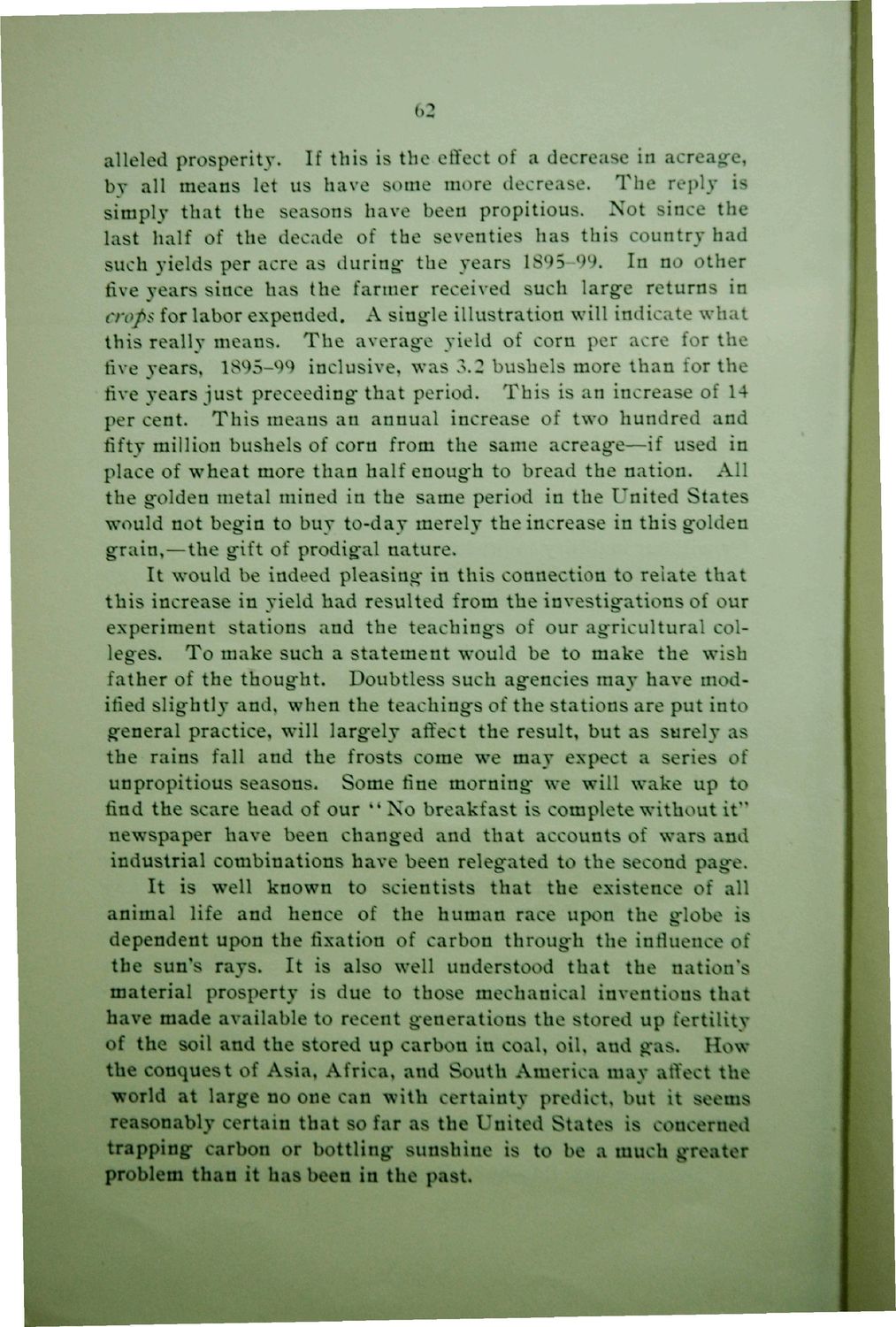| |
| |
Caption: Dedication - Ag Building
This is a reduced-resolution page image for fast online browsing.

EXTRACTED TEXT FROM PAGE:
62 alleled prosperity. If this is the effect of a decrease in acreage, by all means let us have some more decrease. The reply is simply that the seasons have been propitious. Not since the last half of the decade of the seventies has this country had such yields per acre as during the years 1895-99. In no other five years since has the farmer received such large returns in crops for labor expended. A single illustration will indicate what this really means. The average yield of corn per acre for the five years, 1895-99 inclusive, was 3.2 bushels more than for the five years just preceeding that period. This is an increase of 14 per cent. This means an annual increase of two hundred and fifty million bushels of corn from the same acreage—if used in place of wheat more than half enough to bread the nation. All the golden metal mined in the same period in the United States would not begin to buy to-day merely the increase in this golden grain,—the gift of prodigal nature. It would be indeed pleasing* in this connection to relate that this increase in yield had resulted from the investigations of our experiment stations and the teachings of our agricultural col* leges. To make such a statement would be to make the wish father of the thought. Doubtless such agencies may have modified slightly and, when the teaching's of the stations are put into general practice, will largely affect the result, but as surely as the rains fall and the frosts come we may expect a series of unpropitious seasons. Some fine morning we will wake up to find the scare head of our " N o breakfast is complete without it" newspaper have been changed and that accounts of wars and industrial combinations have been relegated to the second page. It is well known to scientists that the existence of all animal life and hence of the human race upon the globe is dependent upon the fixation of carbon through the influence of the sun's rays. It is also well understood that the nation's material prosperty is due to those mechanical inventions that have made available to recent generations the stored up fertility of the soil and the stored up carbon in coal, oil, and gas. How the conquest of Asia, Africa, and South America may affect the world at large no one can with certainty predict, but it seems reasonably certain that so far as the United States is concerned trapping carbon or bottling sunshine is to be a much greater problem than it has been in the p a s t
| |